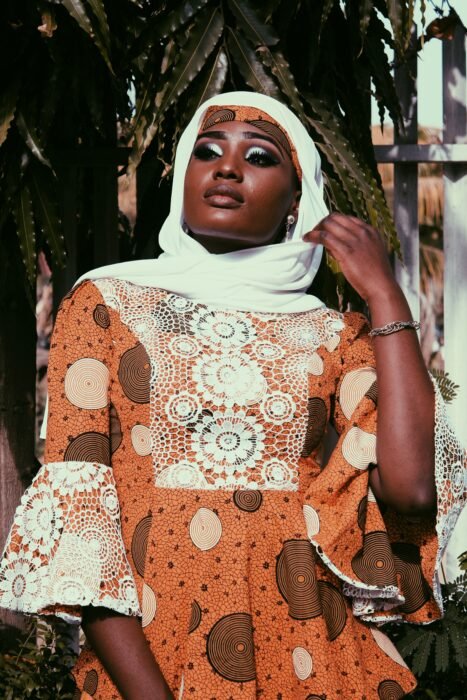Nigeria is the most populous countries in Africa, with a total population projected to exceed 250 million by 2050. The country is divided up into six geopolitical zones: North-East, North-West, South-East, South-South, Middle Belt and West Africa. Nigeria has a diverse range of ethnic groups which brings about difference in languages spoken as well as cultural beliefs and practices. This blog post will be exploring the geopolitics zones found within Nigeria including their populations!
North West Geopolitical Zone
Nigeria has a great potential for economic development and growth. This is the reason why the north-west geopolitical zone of Nigeria is being recognized as one of the most promising investment destinations in Africa. The North West region of Nigeria, which includes Kano State, Kaduna State, and Sokoto State among others, offers huge opportunities for investors who are looking to diversify their assets across Africa.
The North-West geo-political zone covers an area that measures approximately 47 million hectares or 143 thousand square kilometers with more than 3% land mass coverage. It also has about 9% population coverage with a total population around 31 million people.
The Hausa people occupy this region and they are known for their spectacular clothing and jewellery, but they also have a rich tradition with storytelling.
The hausa people from the northern region of Nigeria are well-known throughout Africa for their exuberant attire as much as anything else. But what may be less know about them is that they hold an ancient oral history through stories told at night by elders to children around fireside hearths.
The states in this zone are:
- Jigawa.
- Kaduna.
- Kano.
- Katsina.
- Kebbi.
- Sokoto.
- Zamfara.

North East Geopolitcal zones
The north-east geopolitical zone is an area that covers about 20% of Nigeria’s total land mass. This zone includes some major cities such as Yola and Maiduguri.
The North East geopolitical zone is home to many diverse cultures including Islamic communities who follow Sharia Law, Indigenous People (Hausa), minority Christian.
The Hausa people are a large ethnic group in Nigeria. They live mainly north of the Niger River, which is just south of their northern border with Benin and to the west from where they share borders with Mali, Chad and Cameroon. The land that this tribe inhabits has been traditionally called hausaland or more recently Haushalikia-as both names mean ‘countryside’. This area was once part of what geographers call Sudanic Africa but now occupies an approximate triangular shape on West Africa’s map between about 12 degrees North latitude to 15 degrees North latitudes.
The states in this zone are:
- Adamawa.
- Bauchi.
- Borno.
- Gombe.
- Taraba.
- Yobe
North Central Geopolitical Zone
The North Central geopolitical zone of Nigeria is a huge geographical region in the center and middle of Nigeria. The Northern part of this region, which includes Plateau state and Nassarawa State has a population density over 200 people per square kilometer. This area is mostly rural with many small villages dotting the landscape.
- Niger
- Kogi
- Benue
- Plateau
- Nasarawa (Nassarawa)
- Kwara
- FCT
south south geopolitical zone
The south south geopolitical zone of nigeria is a part of the country that has been neglected for decades. The area consists of eight states, which are Edo, Delta, Bayelsa, Cross River, Akwa Ibom. The region’s economy relies on agriculture and fishing to sustain its people.
Nigeria is home to some of the most prolific oil fields in Africa, and these have been exploited for years. Most of the oil is found in this region. The Nigerian economy has often relied on its natural resources like petroleum, but now it’s time to shift away from an extractive-based economic system toward a more sustainable one that relies less on fossil fuels as demand increases worldwide.
- Akwa Ibom.
- Bayelsa.
- Cross River.
- Delta.
- Edo.
- Rivers.
south west geopolitical zone of Nigeria
The south west geopolitical zone of Nigeria is a region that was created by the Nigerian government in 1976. The South West Geopolitical Zone covers an area of 57937 square kilometers and accounts for 6% of the total landmass in Nigeria.
The Yoruba people of Nigeria are known for their rich and vibrant culture that spans centuries dominate this region. The South West Geopolitical Zone is the second largest zone in Nigeria, with a population over 18 million! It’s no wonder they’re so influential considering all these factors combined.
The Yoruba people are a diverse group with many languages and cultures. They live mostly in the southwestern zone of Nigeria, but also reside outside of it in Kenya, Ghana, Sierra Leone as well as other African countries.

The Yorba tribe is one such subset within this culture that has its own language recognizable by few outsiders; yet these individuals have an incredible history dating back to 600BCE where they were among the first civilizations on earth!
These are the states in the region
- Ekiti.
- Lagos.
- Ogun.
- Ondo.
- Osun.
- Oyo.
The south East Geopolitical zone
The south east region of Nigeria is the most populated region in Nigeria. It has an area of over 160,000 square kilometres and a population of about 30 million people.
The states that make up this zone are: Abia, Anambra, Ebonyi, Enugu and Imo. There are many languages spoken here like Igbo (the major language), Yoruba and Hausa as well as English which is the official language used in schools.
The capital city for this zone is Enugu.
The Igbo are a tribe in Nigeria and they occupy these region. They do not have their own country, but live mainly across the southeastern region of Nigeria.
The language that they speak is Igbos and many people refer to them as “Igbes” or call themselves Americo-Nigerians because they were colonized by America during slavery time periods from 1820 – 1860s when African Americans came into contact with Western ideas such as Christianity through evangelical missionaries.

They have three main social classes-the titled aristocracy at the top with its chiefs such as Obi or Eze; below them came middle class warriors whose job it was to protect society from outside enemies; finally there were workers who do all tasks needed in order to keep life going on inside of villages: farmers, blacksmiths etcetera.
- Abia
- Anambra
- Ebonyi
- Enugu
- Imo.
Nigeria is a country in Africa. It has been divided into geopolitical zones to help with the management of different parts of the country. The six main geo-political zones are North West, Northern East, North Central Nigeria, South South, South West and South East; each zone can be broken down into even more specific states which may vary depending on what you’re looking for or where your interests lie.
Abbey Johnson has a Masters degree as an engineer and has over 3 years of teaching and research experience. He is happiest when on a bike and is also interested in electric energy and computer Science.

